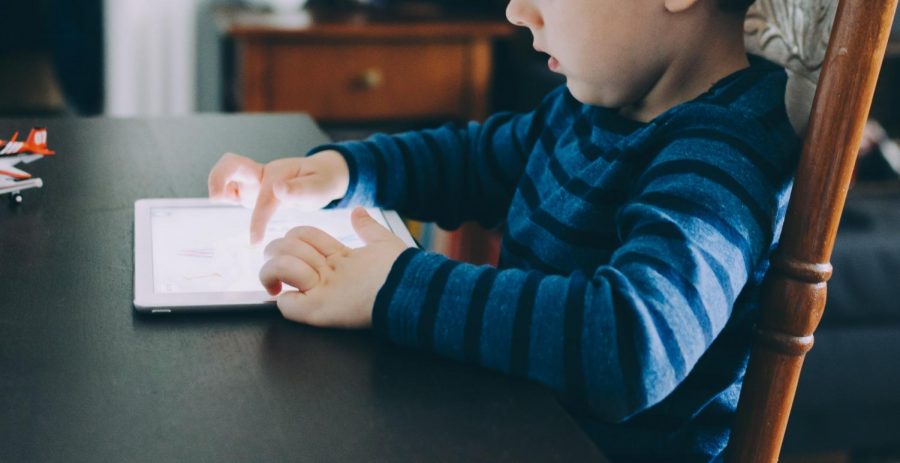Excessive device use takes toll on kids
photo used with permission of Unsplash/Kelly Sikkema
An excessive use in technology can negatively effect young kids including mental health issues and academic development issues.
March 3, 2021
The exponential growth of technology use by kids during recent years has allowed for benefits such as accessibility and convenience, but at a cost. Technology allows people to connect to the world more than ever before, but it can also be isolating from the people around them. According to Kaiser Family Foundation, minors are spending about seven and a half hours a day on their devices, which is over 53 hours a week. To put it into perspective, this amount is more than how much time many adults spend at work.
While many adolescents used to spend their time hanging out outside with friends or playing physical interactive games such as board games, they are now spending their time watching movies, on social media or playing video games with their eyes glued to the screen.
“Excessive screen time in kids might lead to them being more antisocial, as they’ll spend most of their time on screens engrossed in the content,” senior Jake Li said.
According to The Daily Universe, early exposure to technology in children may cause many issues as they grow older, one of which being a lack of personal relationships. This issue can then grow to affect children’s mental health as it can increase their risk for disorders such as depression, anxiety and eating disorders.
Easy and early access to social media has also contributed to the issue of comparing oneself to others, high standards and cyberbullying which may cause low self-esteem in kids.
“I feel like technology is good when it allows kids to learn more about the world so they can find their interests, compared to what they learn only in school or from their parents,” sophomore Vivian Nam said. “[However] I also think it creates more standards for kids and is why depression is more common nowadays.”
Although technology has contributed to the increase in mental health issues in children, it has also provided an outlet to an endless amount of information and possibilities. Kids are able to use devices to educate themselves in anything their curiosity desires and to explore new passions.
Bill Gates stated that he believes the safest age for introducing personal devices is at high school age, according to Inc. At that point, kids have already grown into teenagers who are able to be responsible and safe with their devices and differentiate between what is productive and what is harmful.
“I would rather live in an advanced world like today compared to before because technology gives everyone more knowledge and capabilities,” Nam said. “However, I think technology may need to become safer and have more security for kids and teenagers.”
However according to The New York Times, although early access to devices may allow for educational benefits, many kids struggle to transfer the skills they learned through a screen into the real world. They also seem to be doing worse on tests regarding skill sets in reading and writing English, which may lead to a setback as the child grows older.
The growth in use of technology among kids has significantly impacted them in many ways, educationally and socially. Technology use among children below high school should be limited in order to avoid mental health issues and help mitigate some issues that come along later.




